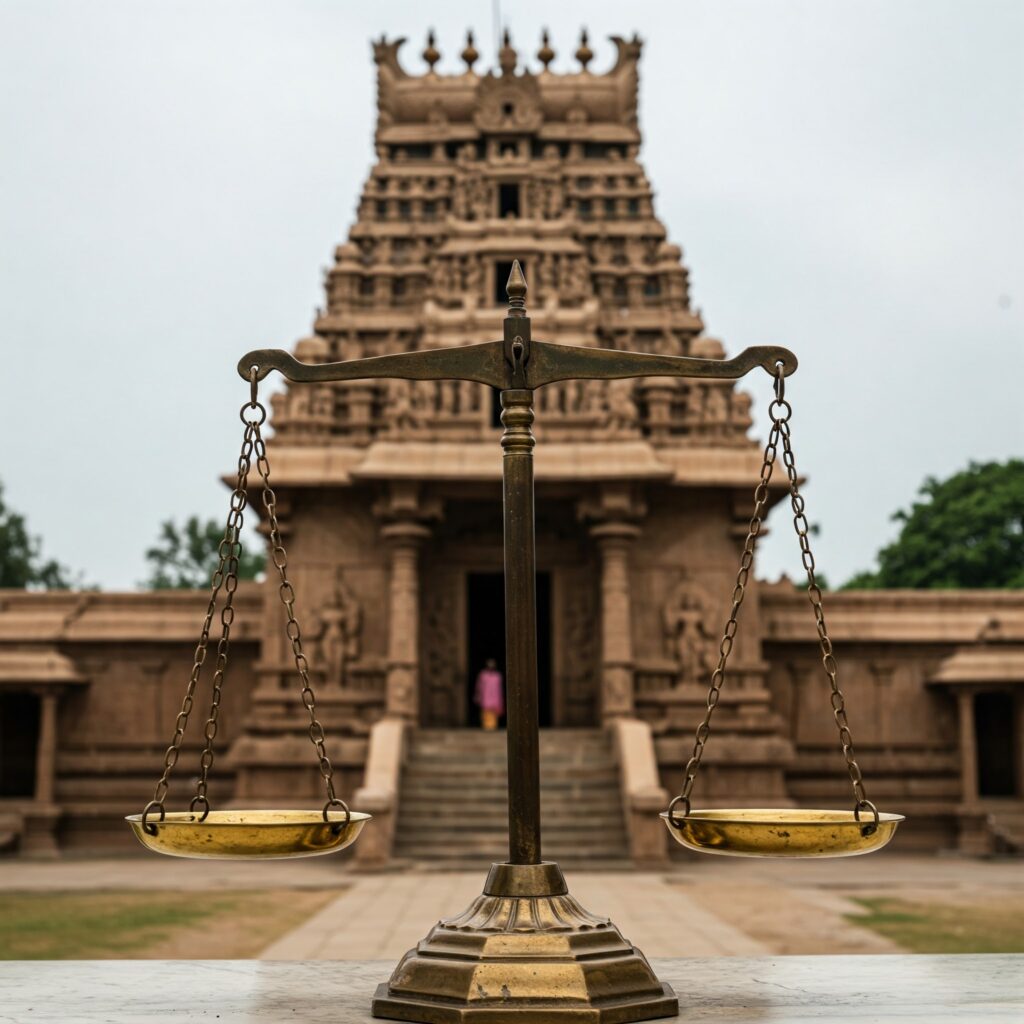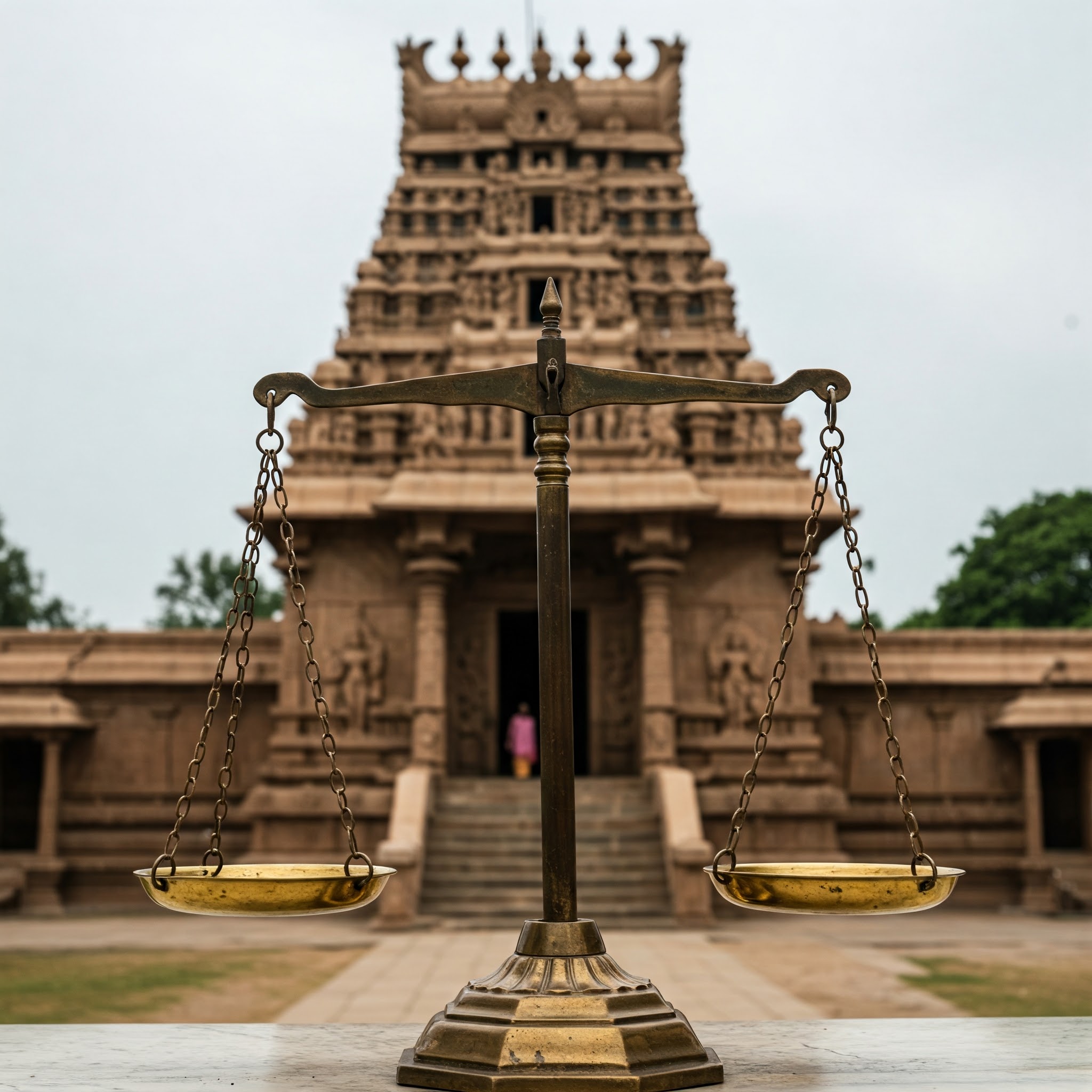The Madras High Court (Tamil Nadu) has ruled that no caste can claim ownership or control over temples. Justice Bharat Chakravarthy stated that temples belong to the public and should be open to everyone, no matter their caste.
The Case: Who Should Run the Temple?
The case was about the Arulmigu Pongaliyamman Temple in Tamil Nadu. This temple is part of a group with Arulmigu Mariamman, Angalamman, and Perumal Temples.
A group of people said:
- Other temples were run by people from different castes, but their caste had always managed the Pongaliyamman Temple.
- They asked the court to let them continue managing the temple on their own.
But the High Court rejected this and said :
- Temples are for everyone, not just one caste.
- No one can claim special rights over a temple because of their caste.
- Allowing this would lead to division and unfairness.

Why the Court Rejected Caste-Based Control
Justice Chakravarthy explained:
- Just because one caste has performed rituals for years, it does not mean they own the temple.
- Temples are public places, and no group can claim control.
- If caste groups control temples, it can create social divisions and misuse of religious places.
- The court referred to an old Supreme Court ruling (Shri Adi Vishweshwara of Kashi Vishwanath Temple vs. State of UP), which already said no caste can own a temple.
- Only religious groups with unique traditions are protected under Articles 25 and 26 of the Indian Constitution.
What This Means for Tamil Nadu and India
- Ensures all temples in Tamil Nadu are open to everyone.
- Supports equality and stops caste-based discrimination.
- Prevents people from misusing religion for personal control.
- Makes it clear that temples cannot be owned by one caste

